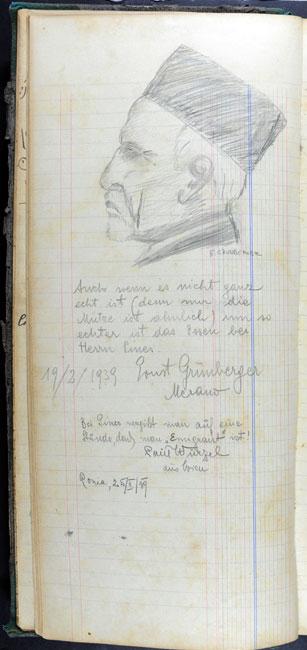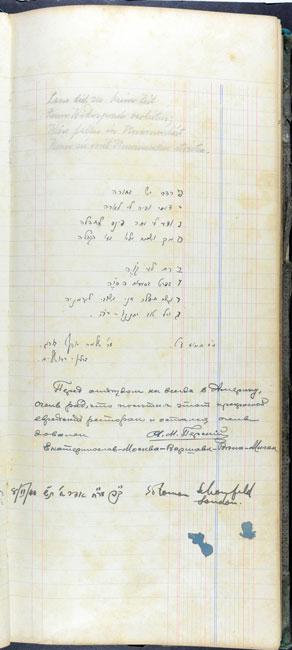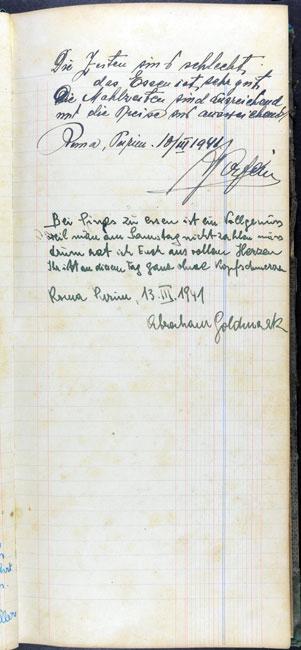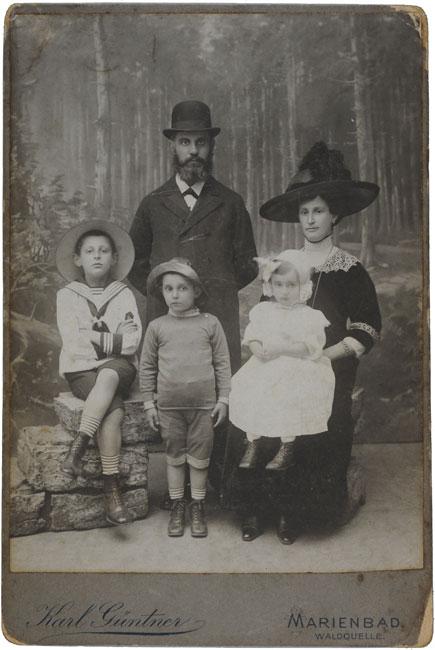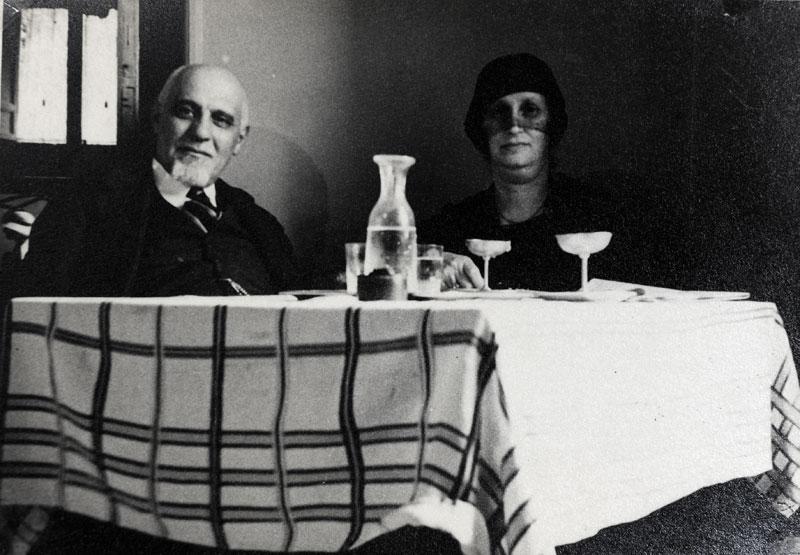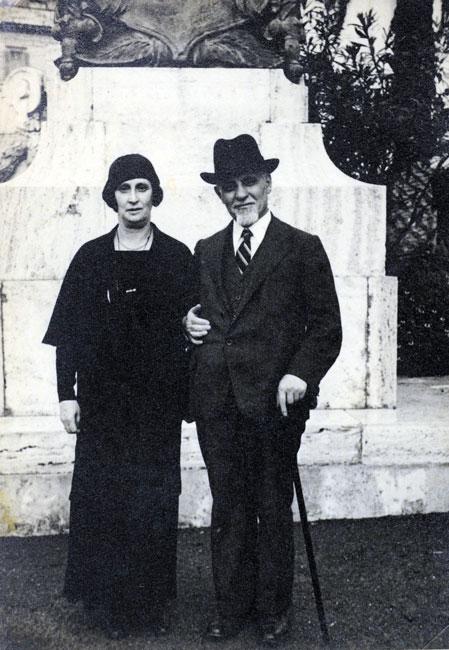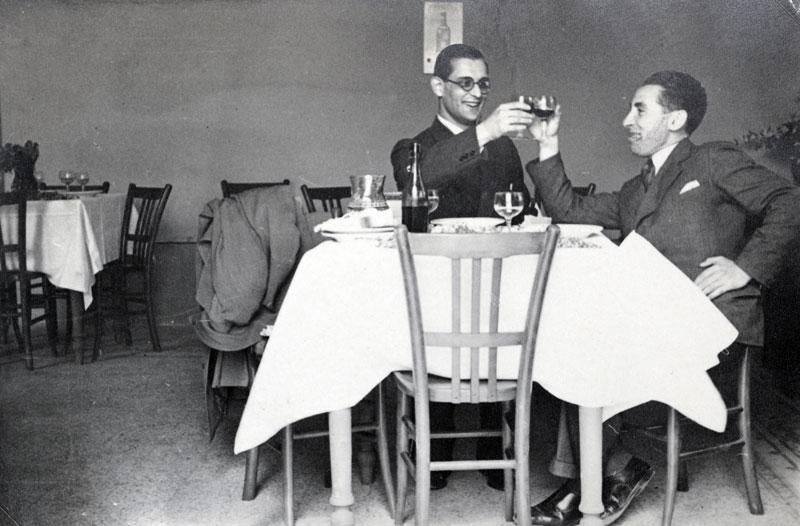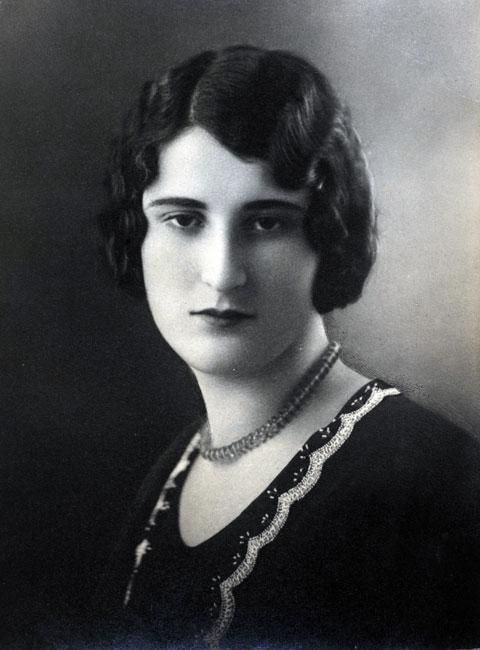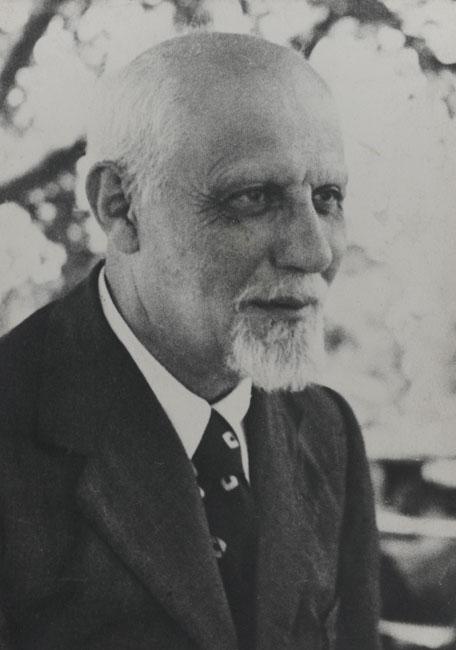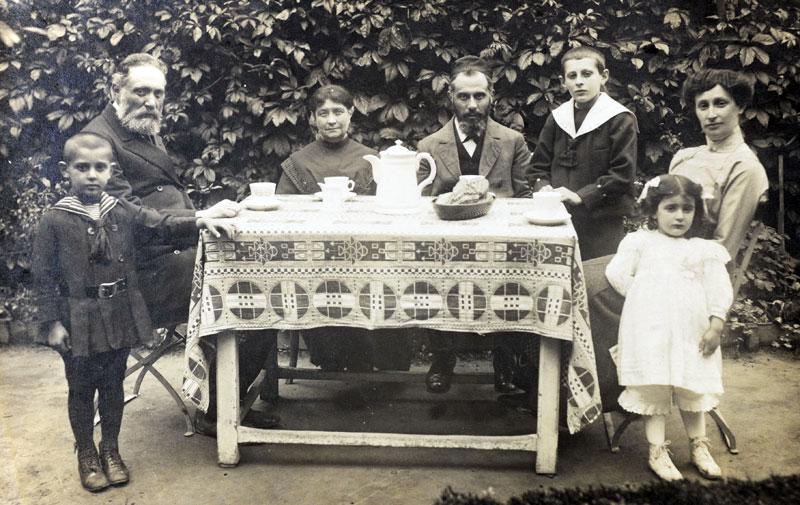In July 2011, Ariel Shalom came to a Gathering the Fragments collection day carrying a very special object: a guest book from a Jewish restaurant/pension in Rome dating from 1937-1941. He had no information about the artifact, as the book had come into his possession accidentally, having caught his eye amid old maps that had been placed in a trash bin on Reines Street, Tel Aviv.
At first glance the guest book from Rome testifies to a very special Jewish establishment that operated in Rome during the years of Fascist rule, and even for some time under German occupation, when all Jewish businesses were shut down. However, while information about the pension and its owner, Yitzhak Eliyahu Pines, could be gleaned from the inscriptions left by his guests, more clues were needed to reveal the full picture.
Several months after it was received, Dr. Iael Nidam-Orvieto, then Editor-in-Chief of Yad Vashem Publications, told participants at the annual assembly of the Association of Italian Immigrants in Israel about the guest book from Rome. The next speaker, Dr. Sergio Minerbi, identified himself as a relative of Pines, and related to those gathered that he knew Moshe and Eldad Labi, Pines’ grandchildren. A meeting with the grandsons helped reconstruct the story in its entirety.
B”H (With God’s help)
In the evil city Rome that was the cause of our exile, in the capital of Titus the evil one, his name should be blotted out, God has set up a lantern for passersby. Of the Roman nation not one survives and on the place where thousands of years ago our ancestors were sold as slaves stands a house inhabited by the descendant of that downtrodden people and from the windows of that house the sound of Torah spreads to the four winds …May the lantern shine for 120 years.
Josef Ehrlich
Rome,
Thursday, Parshat Bo 5699 (January-February 1939)
Yitzhak Eliyahu Pines was born in 1873 in Belarus. He studied at the Volozhin Yeshiva and married Haya (née Ginzburg). Their sons, Arieh-Leib and Israel, were born in Bialystok. In 1906, following a pogrom in the city, the Pines family moved to Austria, where in 1910 their daughter Gita was born.
In 1922, they moved to Rome, where Yitzhak Eliyahu established the Pensione Pines – the only kosher restaurant in Rome that also offered lodging.
In Hebrew rhyme:
The Torah is an orchard
I knew it and was filled with light
Now I know that Pines is to be praised
Rely on and rejoice with him in this community
However, my heart hopes
Particularly in these stormy times
I pray that on my return to Germany
God will grant me a good destiny.
22 Tammuz 5699 (9th July 1939)
Dr. Shlomo Yosef Burg
Berlin – Jerusalem
The pension became a meeting place for Jewish leaders and thinkers visiting Rome, as well as for Jews stopping over en route to Eretz Israel. Their gratitude for the cordial reception and delicious meals is expressed in the inscriptions they left in the guest book, in many languages. Moshe Labi noted that the guest book had always been his grandfather’s pride and joy.
Augusto Segre came to Rome from Montferrat in northern Italy in the 1930s to study for the Rabbinate. In his memoirs, he includes a warm description of his stay at the Pensione Pines and the guesthouse's role as a 'lookout point' to the Jewish world.
At the Pines Pensione. For the first time in my life I'm at a lookout point (so to speak) that is invaluable for direct knowledge of a Jewish world that is much larger – because it's international – than the one familiar to me, which in practice is bounded by the Monferrato hills. Kindly Signor Pines, who speaks several languages (even though imperfectly), recognizes ictu oculi the people who enter and approaches them using the right language. He rarely makes a mistake. He has already had me admire and comment on two huge volumes in which his transient customers have expressed their opinions, in many languages, not only about the food but also about the personality who manages the pensione. I find famous names there that I recognize through the Jewish press and their works. Even those who are not observant, who don't eat kosher – when they come to Rome they almost always make a brief appearance at Pines's a part of their visit's agenda. Augusto Segre, Memories of Jewish Life, From Italy to Jerusalem, 1918-1960, University of Nebraska Press, USA 2008, pp. 147-148.
Segre also describes the special atmosphere in the pension on Sabbaths:
During the week the clients are few, but the dining hall fills up on Friday evening and Saturday at noon. On Saturday afternoon there is also the se'uda shelishith (third meal), to which we students were invited and, naturally, which we took part in quite gladly – the truth be told, not only for the food and the sweets that ended the meal but especially for the beautiful songs that followed one another and that lasted until the first shadows of the sunset, the moment of havdala (separation, the end of the Sabbath). They were old, traditional songs that I, however, was hearing for the first time. The pronunciation was typically Ashkenazic, and they seemed to bring me the echo of the age-old sufferings and hopes of East European Judaism. Augusto Segre, Memories of Jewish Life, From Italy to Jerusalem, 1918-1960, University of Nebraska Press, USA 2008, pp. 147-148.
Yitzhak Eliyahu was a central figure, not just for guests at the pension but also within the Jewish community. He was informally regarded as the Rabbi of the Ashkenazi community in Rome. He read the weekly portion from the Torah and served as the cantor of the synagogue.
In 1930, Gita married Haim Vittorio Labi, a wealthy jeweler from Benghazi, Libya, who stayed at the pension during a business trip and fell in love with the innkeeper’s beautiful daughter. After the wedding, the couple sailed to Benghazi, where their sons were born. Every year, the boys were taken to visit their grandparents in Rome. Moshe and Eldad remember visiting the local synagogue and marionette theater with their grandfather.
Dear Mr. Pines!
I stayed with you as an émigré, a refugee
– may it be G-d’s will that I visit you in the future as a tourist!
Rome, 9/5/1940
Yitzchak Issac Calel
Lodz, Poland
The final inscription in the guest book is dated the 13th of March 1941.
Eating at Pines is a complete relief because on the Sabbath you don’t have to pay.
Therefore I wholeheartedly recommend to all the guests to eat here on that day with no needless headaches.
Rome, Purim 13/3/1941
Abraham Goldmark
A short time later, the pension closed down, and the Pines family went into hiding.
Rabbi Dr Ephraim Elimelech Urbach, who came to Rome through his role as a chaplain in the British army wrote in his diary on the 15th of August 1944:
I went immediately to find someone who knew of Pines, with whom I lived ten years ago. He has just returned from his hiding place and his wife is still there. There was great happiness. Ephraim Elimelech Urbach, Reshimot Bi-Yeme Milhamah : Yomano Shel Rav Erets-Yiśraeli Ba-Tsava Ha-Briti, 1942-1944, Israeli Ministry of Defense, Tel Aviv, 2008, p 279
The Labis emigrated to Eretz Israel from Benghazi in 1943, via Egypt. In 1946, they were joined by Gita’s parents. After Haya died, Yitzhak Eliyahu moved into his daughter’s house, and in 1950, the family moved to Reines Street in Tel Aviv. Due to a shortage of space in the apartment, the documents brought along by Yitzhak Eliyahu were placed in the attic. Several months later, Yitzhchak-Eliyahu passed away.
Gita was certain that the guest book had remained in Italy, and the family mourned its loss. Meanwhile, the book remained in the attic, and when the apartment was sold, its new owners emptied out the storage area and placed everything they found there in the garbage. This is how the book came to be discovered by Ariel Shalom, who brought it to Yad Vashem.
The news of the book’s reappearance was received by the family with great emotion. Dr. Minerbi (whose grandfather was Haya Pines's brother), as well as Moshe and Eldad Labi, Yitzhak Eliyahu’s grandchildren, came to Yad Vashem where they could see the book again – a testament to their grandfather’s story and to what was probably the last center of bustling Jewish activity in Rome, even in the shadow of the war.
